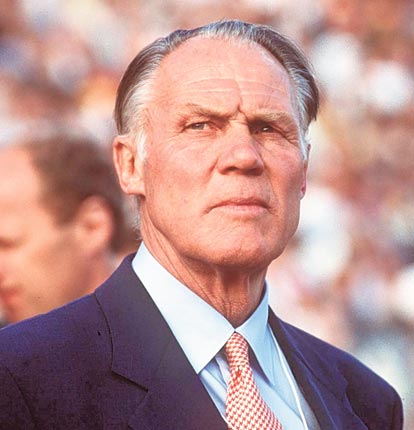Dutch dynasty: The small nation with the big footballing pedigree

Ten straight wins, 25 games unbeaten, that Marco van Basten volley to help win the European Championship final in 1988, and three World Cup final appearances... whatever happens tomorrow at Soccer City in Johannesburg, Holland are currently, and have been for the last four decades, a football phenomenon.
Just as Spain – a nation of 46 million people– has underachieved by never reaching a World Cup semi-final before this tournament, the Dutch (a country of only 16.5m) have been overachieving ever since Rinus Michels led Ajax to the first of three straight European Cups in 1971. Michels went on to coach a Barcelona side that had Johan Cruyff as its heartbeat. And, with Cruyff wearing the Orange of the national side, Michels also led the Dutch to the World Cup final in 1974, which they lost 2-1 to hosts West Germany.
Without Cruyff and Michels they returned four years later and reached the final again, beaten in extra-time 3-1 by hosts Argentina. But Michels was back in 1988 and he led a team boasting the talents of Ruud Gullit and Van Basten to become European Champions - the first and last time Holland have won a major tournament.
Despite only ever finishing second in the World Cup and missing the 1982 and 1986 finals, their reputation for being the guardians of good football, have made them a tournament institution. Holland have always been the philosophers of football. Britain invented the game and in the 1970s the Dutch reinvented it. No one sums up their way better than the chief sage, Cruyff. "Some players hear the clock ticking but they have no idea what time it is," was his way of describing the difference between a player who really understood football, and one who did not.
"It's a simple game but it is sometimes hard to play simple" he added about what the Dutch call "Total Football", which Michels employed at national and club level with Holland and Barcelona, and Cruyff then continued.
Therein perhaps lies the key to 40 years of almost consistent excellence: continuity. Michels passed the baton to Cruyff, and later to Van Basten; Cruyff handed it to Frank Rijkaard.
Rijkaard, who led Barcelona to a European Cup win in 2006, played in the Euro '88 team managed by Michels. Michels coached the Barcelona team that Cruyff played in; Cruyff coached the so-called "Dream Team" that won Barcelona's first European Cup in 1992. Pep Guardiola played in that team, and was then recommended by Cruyff to coach Barcelona – which he did, winning the treble in 2009.
There is a criss-cross of lines marking the influence of the Dutch dynasty as it has spread from Ajax to Holland then onto Barcelona. The irony of this third World Cup final appearance is that to some extent that lineage has been broken. It was Van Basten who took charge of their last World Cup campaign, when they went out to Portugal in the second round. But the current coach, Bert van Marwijk, only played once for Holland. He never turned out for Ajax, and, in the build-up to tomorrow's final, Cruyff has praised the Spanish because their style is closer to the one he first experienced playing for Michels at Ajax.
Midfielder Wesley Sneijder has hinted that the Dutch will try to suffocate Spain. "We cannot allow them any time and space once they reach high up the pitch," he said.
Their football tomorrow might not be as attractive as it has been in the past and they are not being led by one of their footballing greats. But maybe that change will alter Dutch luck, and for once the philosophers of football will be the kings.
Subscribe to Independent Premium to bookmark this article
Want to bookmark your favourite articles and stories to read or reference later? Start your Independent Premium subscription today.

Join our commenting forum
Join thought-provoking conversations, follow other Independent readers and see their replies